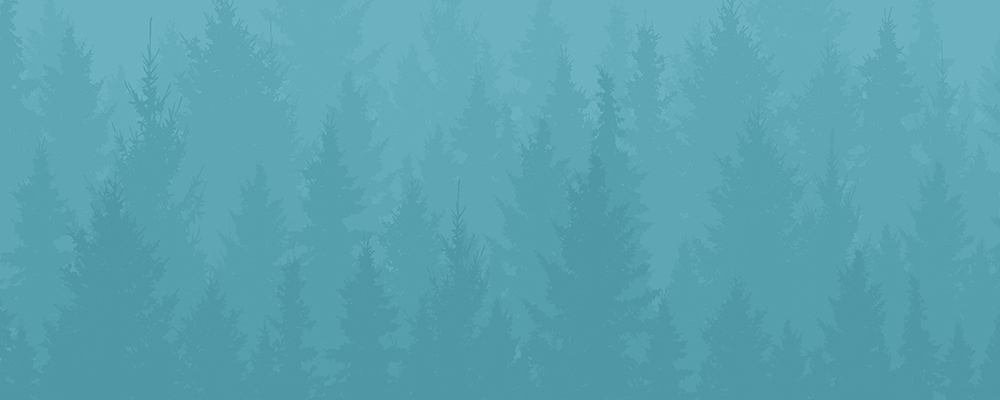It’s officially 2024—which means that Environment and Climate Change Canada has released its annual list of the most record-setting Canadian weather events of 2023. From wildfire smoke to smokin’ hot heat to drought to buckets and buckets of rain, the weather was all over the place last year. Here’s what cracked the top 10.
1. Record-shattering wildfires
No shock here—last year’s wildfire season topped the list. It shattered multiple records. The 184,493 square km of burned woodland was larger than the combined size of Canada’s maritime provinces. According to ECCC, “the amount burned was more than double the previous high of 70,000 square km consumed in 1995 and dwarfed the 10-year average of 27,538 square km.”
B.C. wildfires leave path of destruction
2. Holy smoke
Canada was a smoke show in 2023—and not the good kind. Because of the terrible wildfire season (see above), choke-inducing smoke filled the air not only in Canada, but elsewhere in the world. Summer smoke from Eastern Canada made headlines in New York City, and wildfire smoke drifted as far as Greenland, Iceland, and other portions of Europe. Sorry, guys.
Forest fire smoke may pose greater risk to cottagers, experts say
3. Feelin’ hot, hot, hot
Last year was the warmest on record; according to ECCC, it was definitely the hottest since 1940, but it was also likely the hottest since 1850! And, says ECCC, “if reconstructing past climates using geological and biological evidence, likely the warmest in history dating back to when human beings began appearing 120,000 years ago.” Yipes! June was the warmest June ever, and so was July—about 1.5°C above the 1850 to 1900 average. Even September was the warmest on record globally, according to the World Meteorological Organization.
The origin of the idiom “Dog Days of Summer”
4. Raining cats and dogs in Nova Scotia
After weird record-dry and record-hot conditions in the spring, the province started drowning in rain: by the end of June, Halifax had seen 214 mm of rain (more than double the usual monthly average). July was also a record-setter: 187 mm, a.k.a. nearly double the normal amount of rain for that time of year. But the July total was shocking for another reason: almost all the rain fell in less than two days, on July 21 and 22. That July rainstorm also brought a massive amount of lightning to Nova Scotia—23,008 lightning strikes, the largest amount of lightning in 22 years.
5. Drought!
Spring should be a wet time of year, but it wasn’t in 2023 (see above). At the beginning of June, most of Canada was freakishly dry. The drought hit every province and territory. “Even farmers in Eastern Canada were concerned about an alarmingly dry spring and maximum temperatures that soared above 30°C in mid-April—never had it been so warm so early in the year,” reports ECCC. Alberta and Manitoba saw record-low amounts of precipitation, the lowest in 100 years.
6. Lee who?
It was no Fiona—and it didn’t get the same headlines—but Hurricane Lee still made an impact. In September, a “weather disturbance” emerged from the west coast of Africa. Storm Lee grew from a Category 1 to 5 hurricane in less than 24 hours; it was the third most rapidly intensifying storm in history and “one of the 40 most powerful storms ever recorded in the Atlantic basin.” Winds hit 269 km/h—and 118 km/h is considered “hurricane force.”
This is what to expect from severe wind activity
7. The “glaze storm”
Turns out, we can get freezing rain in months that have no business calling themselves winter. In early April, just before Easter, a late-season storm moved into the Great Lakes and St. Lawrence region, unleashing freezing rain, ice pellets, and hail, not to mention tornado watches in southwestern Ontario and heavy rain warnings all over the place. “The ugly weather then featured up to twelve continuous hours of freezing rain in Montréal and nine in Ottawa,” reports ECCC. Ew.
8. Weird cold spells
Okay, so this technically happened in 2022, but we say it still counts: remember how the holiday season was “over-run by cold air, dangerous wind chills, and all kinds of precipitation”? The weather made travel treacherous; flights and trains were cancelled or delayed and thousands of people’s holiday plans were ruined. Ruined! The weather is a Grinch.
9. Wet in Quebec
July was a sopping month for Quebec. “Several major weather systems loaded with tropical-sourced moisture brought frequent, intense and flooding rains,” says ECCC. By the time the month wrapped, the province received more than 200 mm of rain, more than double the normal. Sherbrooke was the rainiest with 311 mm across 21 days, including six days with more than 28 mm of rain per day, and a monthly total 2.5 times the normal. Umbrella sales were going nuts. Probably.
What’s the flood status in cottage country this year?
10. The Canada Day tornado
Shortly before 2 p.m. on July 1st, a tornado came twisting out of a weather “supercell” on farmland about 70 km north of Calgary. It brought with it rain and hailstones the size of tennis balls. Eek! “The twister ripped through 15 to 20 km of rural land about 670 metres at its widest. Estimated wind speeds topped 275 km/h,” reports ECCC. Based on the damage, the tornado received an EF4 rating on the Enhanced Fujita Scale. The winds were strong enough to lift and toss around heavy farm equipment, including a 10,000 kg combine. Whoa.

A voice from the wilderness
Get The Great Outdoors, our biweekly brief on all things nature
Sign up hereRelated Story Last year’s top 10 Canadian weather events
Related Story Half of Ontarians unprepared for next big power outage, says new report
Related Story Your choice of building materials can impact your cottage’s wildfire resilience